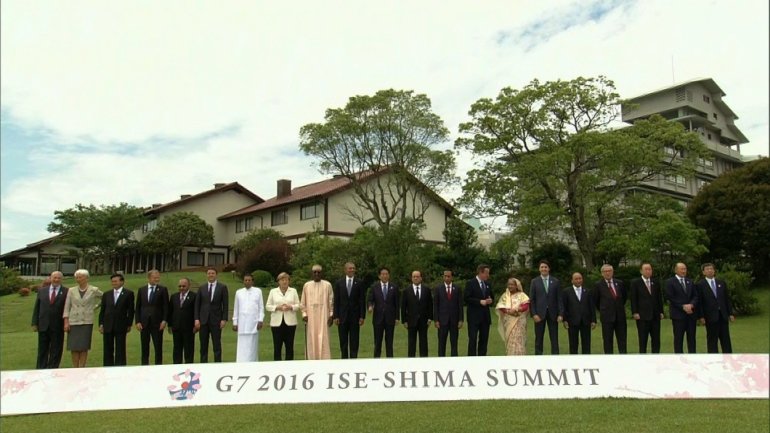
by BGF | Oct 14, 2018 | World Leaders in AIWS Award Updates
Distinguished Global Educator for Computer Science and Security
Loeb House, Harvard University, December 12, 2017

Prof. John Savage, Professor of Brown University
John Savage is the An Wang Professor of Computer Science at Brown University. His current research interests are cybersecurity technology and policy, reliable computation with unreliable components, computational nanotechnology, efficient cache management on multicore chips, and I/O complexity.
Professor Savage is a Fellow of the American Association of the Advancement of Science and the Association for Computing Machinery, a Life Fellow of Institute of Electrical and Electronics Engineers, a Guggenheim Fellow, a professorial fellow with the Global Cooperation in Cyberspace Initiative at the EastWest Institute, and a recipient of a Fulbright-Hays Research Award.
He served as a Jefferson Science Fellow in the U.S. State Department during the 2009-2010 academic year. His professional service has included service on the editorial board of the Journal of Computer and Systems Sciences and as a member of the MIT Corporation Visiting Committee for the Department of Electrical Engineering and Computer Science from 1991-2002.
Professor Savage earned his PhD in Electrical Engineering at MIT in 1965 specializing in coding and information theory. He joined the faculty of the Division of Engineering at Brown in 1967. In 1979, he co-founded the Department of Computer Science and served as its second chair from 1985 to 1991.
John Savage was honored as the Distinguished Global Educator for Computer Science and Security for fundamental contributions to theoretical computer science, information theory, and VLSI design, analysis and synthesis by the Boston Global Forum and the Michael Dukakis Institute on December 12, 2017 at Loeb House, Harvard University.

by Robert Whitcomb | Jul 4, 2016 | AI World Society Summit

Needless to say, the colleagues of Prof. John Savage at the Boston Global Forum (BGF) were very pleased to read the announcement below from Brown University, which we have slightly edited for clarity. John Savage is a BGF member and the An Wang Professor of Computer Science at Brown.
The press release from Brown:
“Congressional Quarterly Roll Call recently interviewed Professor John Savage of Brown University‘s Department of Computer Science (Brown CS) to document a unique moment in history. ‘The May 26-27 meeting of the Group of Seven in Ise-Shima, Japan,’ writes Paul Merrion, ‘produced the G7’s first-ever stand-alone agreement on cybersecurity, data protection and Internet governance.’
“To give a bit of history, the Boston Global Forum (BGF), chaired by former {Massachusetts Gov.} Michael Dukakis, was founded to bring together thought leaders and experts from around the globe to participate in open public forums to discuss and illuminate the most critical issues affecting the world at large. In February, Nguyen Anh Tuan, the BGF’s CEO and a co-founder of the nonprofit think tank, asked John to address the BGF and prepare an agenda for the G7 Summit, working with other individuals affiliated with the BGF to develop his presentation into a formal proposal.
“The G7 agreement (‘The G7 Ise-Shima Leaders’ Declaration’), which draws on the work of Savage and his colleagues, makes the landmark statement that cyberspace is under the rule of national law, and advocates for responsible state behavior during peacetime and the development of confidence-building measures to increase security. ‘It’s very significant,’ John says. ‘It’s progress, it’s recognition that nations need to help one another.”’
For more information, please his this link.

by Robert Whitcomb | Jun 5, 2016 | AI World Society Summit
(June 6th, 2016) Leaders at the G7 Summit approved the first international stand-alone agreement on cybersecurity, including data protection and Internet governance. A number of organizations, including the Boston Global Forum (BGF), submitted recommendations to the leaders for their consideration. The BGF’s recommendations included what it calls the Ise-Shima Norms for cyberbehavior, which builds on the BGF’s Ethics Code of Conduct for Cyber Peace and Security (ECCC). (Ise-Shima is the Japanese region where this year’s summit was held on May 26-27.)

World leaders attend the G7 2016 Ise-Shima Summit in Japan.
The BGF’s recommendations were part of its BGF-G7 Summit Initiative.
“We endeavor to develop policy frameworks that further promote effective privacy and data protection across jurisdictions to meet high standards of privacy and data protection,” according to a statement of principles in the G7 leaders’ agreement.
“We also welcome proactive approaches such as ‘Privacy by Design,’ which take privacy and protecting personal data into account throughout the engineering process. We recognize that protecting privacy and enhancing cybersecurity help ensure business and consumer trust and promote innovation crucial to our economic growth.”
“It sounds innocuous, but it’s not. It’s actually very significant,” John Savage, An Wang Professor of Computer Science at Brown University, told Roll Call’s Paul Merrion. Professor Savage is a BGF member who helped draft the Ise-Shima Norms.
“It’s progress, it’s recognition that nations need to help one another.”
The agreement also states that “no country should conduct or knowingly support ICT (information and communication technology)-enabled theft of intellectual property, including trade secrets or other confidential business information, with the intent of providing competitive advantages to its companies or commercial sectors.’’
It continued: “We commit to facilitate the free flow of information to ensure openness, transparency and freedom of the Internet, and a fair and equal access to the cyberspace for all actors {in the} digital economy while respecting privacy and data protection, as well as cybersecurity.’’
Further, the G7 affirmed: “We continue to support ICT policies that preserve the global nature of the Internet, promote the flow of information across borders and allow Internet users to access online information, knowledge and services of their choice. We oppose data localization requirements that are unjustifiable, taking into account legitimate public policy objectives.”
Professor Savage told Mr. Merrion: “That’s directed at the Chinese and Russians, but mostly the Chinese.” While it doesn’t directly and immediately affect these countries, “it’s a talking point,” he told Mr. Merrion




